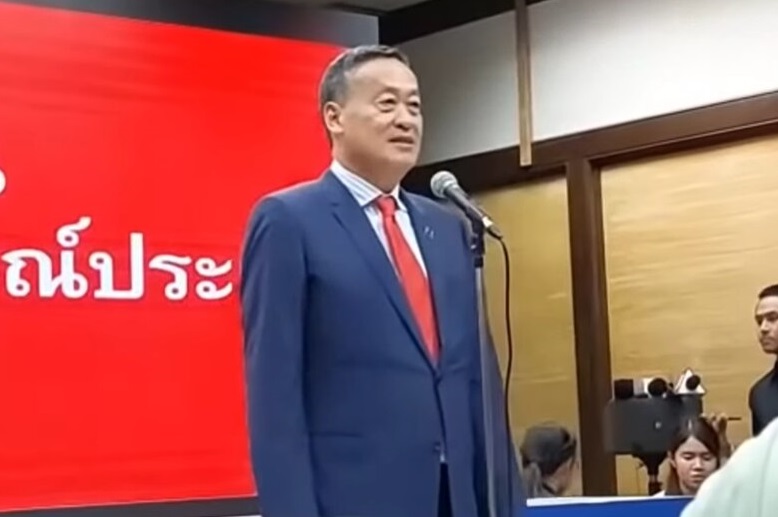The military establishment's judicial warnings to Pheu Thai
First a case against Prime Minister Srettha Thavisin over the appointment of a minister, then accusations of ‘lese majesty’ directly against Thaksin Shinawatra, who has returned to the political scene: the alliance between the arch-enemies that wiped out Move Forward's election victory a year ago is creaking in Bangkok.
Bangkok (AsiaNews) - Two court cases are shaking Thai politics and threaten to sour the fragile relations between the two ‘souls’ of the government majority that has been in office for less than a year.
The first concerns the prime minister, Srettha Thavisin, an exponent of the Pheu Thai, a party that historically has former premier Thaksin Shinawatra as its reference point and has historically been the arch-rival of the current government partner, the pro-military Palang Pracharath.
A week ago, the Constitutional Court granted the request of some 40 senators to open a case against the Chief Executive for alleged irregularities in the appointment of members of his cabinet.
A charge that, if proven, would lead to his dismissal. The accusation is based on the appointment of Pichit Chuenban as head of the Prime Minister's Office, who was involved in 2008 in an attempt to bribe a member of the court that was judging the purchase of land by then premier Thaksin Shinawatra. Pichit resigned last Tuesday also to avoid Srettha's involvement.
In the same government reshuffle that led to Pichit's appointment on 23 April, the current heads of finance and foreign affairs were appointed.
This is another legal move by a Senate exclusively appointed by the military and pro-monarchist establishment, even though it is about to hold new elections with different rules and composition.
The Senate was instrumental in preventing the winning party in the May 2023 elections, the progressive Move Forward, from leading the country. For several observers, therefore, the court case against Thavisin would be a warning to Thaksin's newfound activism.
The latter - who returned from voluntary exile in August 2023 and served what was left of a sentence following his departure from the country in 2008 after the military coup of September 2006 in a hospital under semi-freedom conditions - is at large but risks returning to prison after the Attorney General's Office yesterday charged him again with lese majesty.
This is one of the most serious and controversial charges in the Thai legal system. The measure - again due to reports from groups opposed to Thaksin's return to the political scene and his newfound activism in the country's northern and eastern ‘strongholds’ and in talks with ethnic groups fighting in Myanmar against the military junta - concerns an interview he gave on 21 May 2015 to the South Korean newspaper Chosun Ilbo.
On that occasion, the exiled former premier reportedly pointed to the involvement of members of the King's Privy Council in the May 2014 coup d'état in which the armed forces put an end to the government led by Thaksin's younger sister Yingluck Shinawatra.
The lese majesty law has been used in dozens of cases. Most recently, in recent days, to prosecute Chonthicha Jangrew, a Move Forward MP, and Chaiamorn Kaewwiboonpan, a well-known dissident musician. Both were granted bail pending trial.
07/02/2019 17:28







.png)










